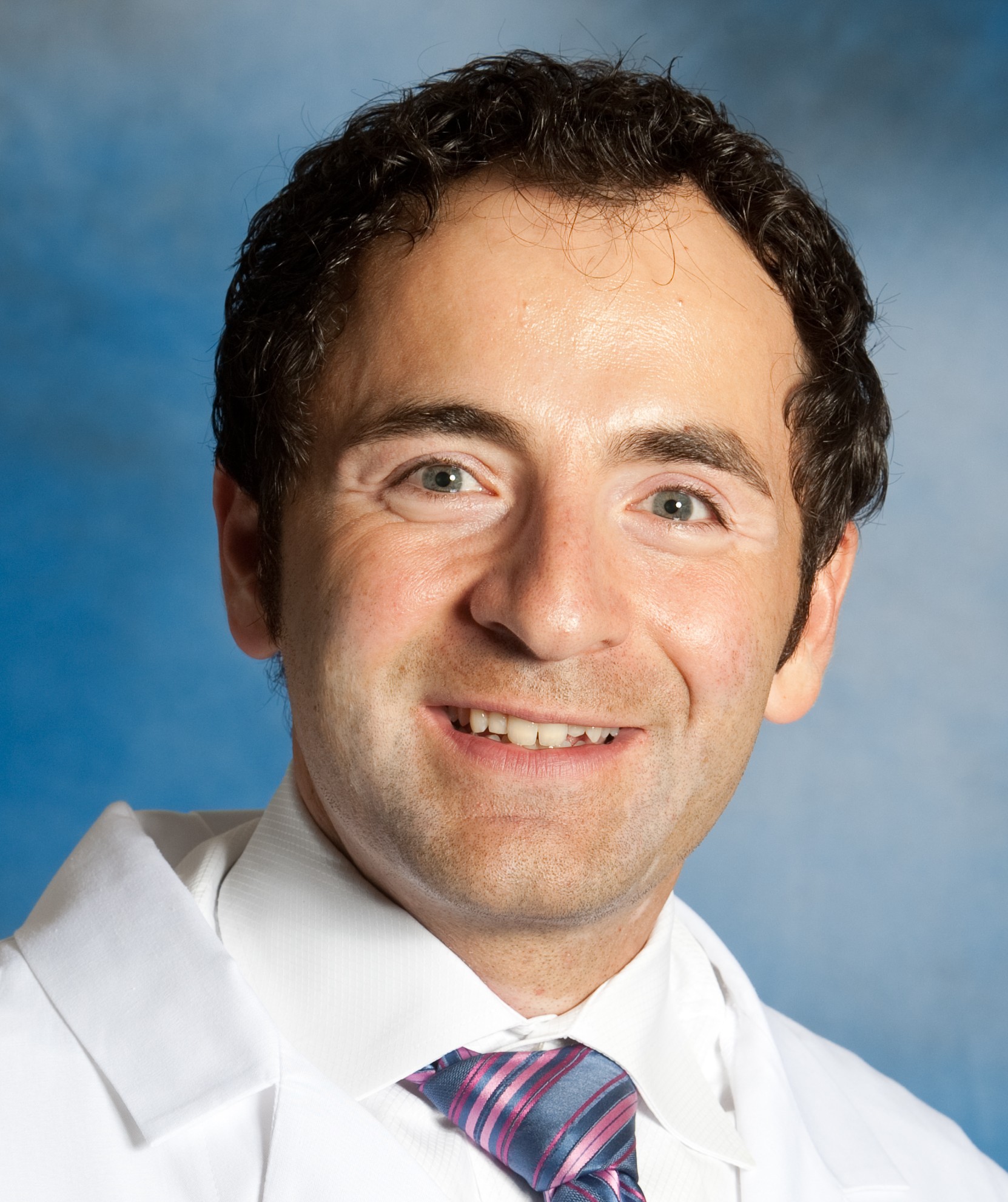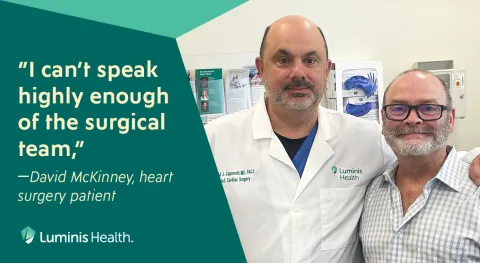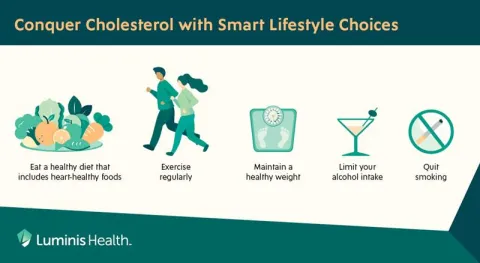by Luminis Health

While heart attacks are physical health problems, many people don’t realize they can create mental health issues as well.
Feeling depressed after a heart attack isn’t uncommon. According to the American Heart Association, up to 33 percent of heart attack patients experience depression.
When someone has a heart attack they’re typically doing something, such as running or walking up stairs. After the heart attack they may be afraid their heart is delicate and hesitate to complete common activities.
Most heart attack patients experience feelings of shock or sadness after a heart attack, but some people can slip into a deeper depression. If these emotions continue for several weeks, it’s time to seek help. Because depression can affect physical health, addressing symptoms quickly can help avoid other problems down the road.
I tell patients, “You’re going to go back to your usual life, as long as you take the right steps.” These steps include faithfully taking prescribed medications, eating a healthy diet and exercising. And cardiac rehabilitation can help.
Cardiac rehab provides a safe environment to start increasing physical fitness. AAMC’s Outpatient Cardiopulmonary Rehabilitation Program includes counseling to help patients improve their health and reduce the risk of future heart problems. Oftentimes, patients who choose to participate in cardiac rehab have better outcomes than those who don’t.
Family members and loved ones also play an important role in helping heart attack patients recover. If you think you know someone experiencing post-heart-attack depression, look for these warning signs:
-Extreme changes in appetite
-Extreme changes in sleeping patterns
-Avoiding previously enjoyable activities
-Insomnia
-Restlessness
-Fatigue
-Feelings of worthlessness
-Feelings of excessive or inappropriate guilt
-Trouble concentrating
Encourage people who show these signs to seek help. For some, support groups are a healthy environment to cope with depression after a heart attack. AAMC’s healthy hearts cardiac support group is available for those who have experienced heart issues. Call 410-507-3766 for more information.
Heart attack patients can experience the same quality of life as they did before their heart attack, but sometimes they need to take extra steps to get there.
 Baran Kilical, MD, is a cardiologist and cardiac electrophysiologist with Anne Arundel Medical Center.
Baran Kilical, MD, is a cardiologist and cardiac electrophysiologist with Anne Arundel Medical Center.
Originally published Feb. 23, 2016. Last updated March 27, 2019.



